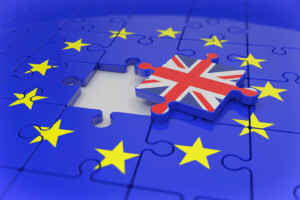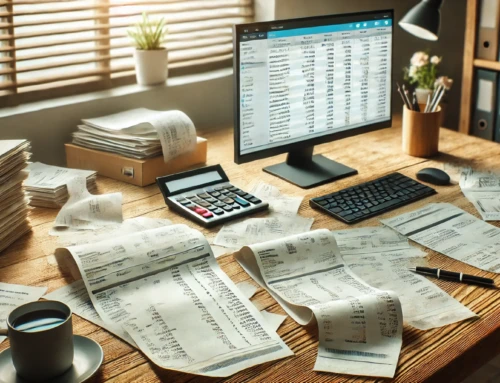
Whatever your thoughts on Brexit – it seems it is going to happen and whether it’s a hard Brexit or a soft one we are going to leave, and the question is how we can prepare.
Your business is likely to be affected even if you don’t have any dealings with Europe – there is likely to be effects on the economy and there will be winners and losers whatever happens.
What if there’s an economic downturn?
The first thing to consider is what happens if there’s a recession – recessions seem to happen periodically even without the help of major political upheaval.
In a recession strong companies, that is those with a strong balance sheet, a good product, efficient operations and a good customer base tend to survive. The weaker companies those with struggling cash flow, a weak product, inefficient operations don’t.
So, now is the time to take stock and assess the state of your business, is it efficient, is it lean, can it take a downturn? Is your business overstaffed, are you spending too much?
Take a step back and review the reality of your business, now, before it’s too late.
Movement of Goods
If your business deals in the movement of goods then be prepared for things to change, new documentation may have to be prepared at both sides of the port – new systems are going to have to be implemented.
The government have launched guidance on what to do if you trade with the EU in the event of No Deal Brexit https://www.gov.uk/government/publications/trading-with-the-eu-if-theres-no-brexit-deal/trading-with-the-eu-if-theres-no-brexit-deal
Read it and become familiar with it – here is a snapshot:
- in the event of no deal, the UK government expects all exporters and importers to register for a ‘UK EORI’ number. The government advises businesses to sign-up for its Brexit email alerts to receive notification when registration is open;
- businesses may also need to apply for an export licence or provide supporting documentation to export specific types of goods from the UK;
- carriers (for example hauliers, and train, vessel or aircraft operators) will need to make a Safety and Security Declaration for goods moving between the UK and EU;
- when exporting duty suspended excise goods to the EU, a business will need to continue to use EMCS to record the duty suspended movement from a UK warehouse or premises to the port of export. On import, once excise goods leave a customs suspensive arrangement, they may be immediately entered into an excise duty suspension regime. A business will need to declare the goods on EMCS for onward movement via a Registered Consignor.
Supply Chain Mapping
Supply chain mapping is the process of reviewing suppliers to document the exact source of every material – it is an essential early step in Brexit planning. Knowing where your inputs come from, and what product category they fall into can help you assess the possible tariffs that might apply.
For those who export goods to the EU, for example, it may be best to plan initially on a worst case basis. This would be that the UK will leave the EU without any trade deal and all exports and imports to the remaining EU countries will now be subject to tariffs under the rules of the World Trade Organisation (WTO).
But it is also important to remember that 57% of UK exports go to non-EU countries and might already be subject to tariffs or quotas depending on the arrangements the European customs union has with the destination country.
Many exporters will therefore already be familiar with customs procedures but extending them to all exports will clearly come at a cost. A more serious problem will be faced by those UK exporters who only export to the EU, for whom applying customs procedures will be entirely new.
The transitional and ongoing costs for these businesses are likely to be considerable in the short-term.
You can find the WTO and EU third-country rates by following these links.
Product Compliance
Non-tariff barriers might be an even bigger barrier to trade than tariffs. These typically take the form of technical specifications with which a product has to comply.
It might be possible for the UK to continue as a full member of the European standards system following Brexit, but it is not guaranteed. Businesses may wish to ensure that their databases of the standards that apply to them are up to date and accessible to staff planning for Brexit.
Contracts might need to be renegotiated or terminated as a result of Brexit. It is particularly important that they adequately clarify the terms for trade across EU borders, including how VAT is dealt with. In the event of no deal, you will need to ensure that contracts and International Terms and Conditions of Service reflect that they are now an international exporter or importer; further guidance from the government on international trade paperwork is available below.
http://trade.ec.europa.eu/doclib/docs/2013/april/tradoc_150987.pdf
https://www.bsigroup.com/en-GB/about-bsi/media-centre/BSI-and-Brexit/
People
While existing employees who are EU nationals can be expected to receive the necessary residency status, it is important to plan for cut-off dates and any differential status that might apply to new arrivals to the UK. Businesses might need to upgrade their IT systems to be able to track the nationality status of employees. Doing so may not only help with compliance, it could also help to assess the extent to which the business has historically been reliant on EU workers.
Cashflow
More complex port procedures could mean businesses need to be prepared to carry out more inventory, tying up additional working capital. In the event of no deal, HMRC has pledged to reintroduce postponed accounting for duty and VAT. That will mean that VAT and duties due on imports from ‘third countries’ (which will include the European customs union if no deal is reached) can be settled on an entity’s VAT return instead of immediately at the port.
A cashflow forecast is always recommended in times of cash uncertainty we have developed a tool that is FREE to all clients so please contact us if you want to implement a cash forecast in your business.
Conclusion
As you can see the issues are wide-reaching and complex and whilst, on the face of it, it seems there isn’t a great deal we can do until the politician’s sort something out and the markets react, some preparation is better than none.






